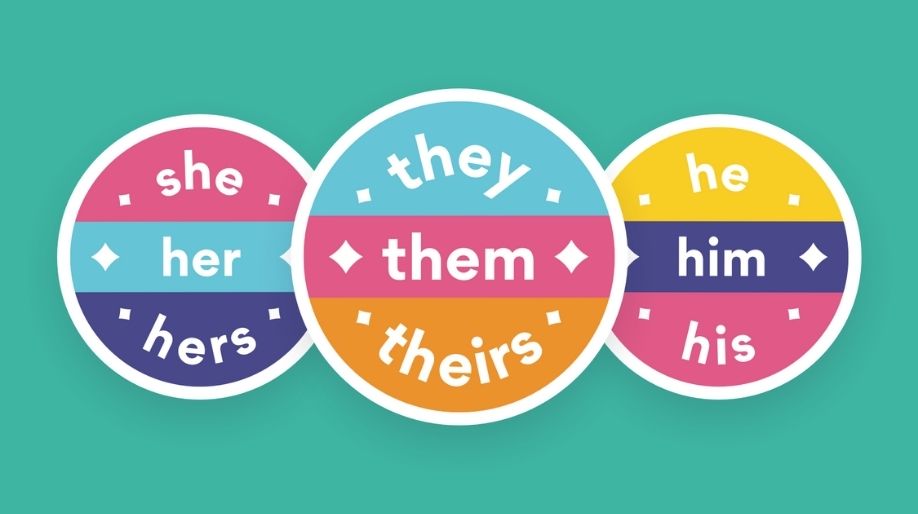
Pronouns are words that can be used to replace a noun. Often, it is used to refer to a noun that has already been mentioned.
Generally, pronouns are categorized as follows:
1. Personal pronouns:
These pronouns are used as a replacement of proper nouns. They are, therefore, used to identify particular persons, groups, or objects.
Personal pronouns include the following:
• I, we, you, he, it, mine, them, us, me, etc.
2. Interrogative/Relative pronouns:
They are used to ask questions and primarily include: what, who, whom, that, which and whose.
‘Who’, ‘whom’ and ‘whose’ are generally used to refer to people. For example:
• ‘What’ is generally used to refer to things.
1. What can I do for you?
• ‘Which’ is used to refer to both people and things.
Note that a noun or a pronoun for which a relative pronoun stands is termed as its antecedent and a relative pronoun always concurs with its antecedent in gender, number and person. Look at the following sentences:
1. That’s the dog who doesn’t like me.
3. Demonstrative pronouns:
Pronouns that refer to specific objects are called demonstrative pronouns. ‘This’, ‘these’, ‘that’ and ‘those’ are words that are generally used to point to various things.
4. Possessive pronouns:
Pronouns that show possession of something are called as possessive pronouns. Possessive pronouns primarily include mine, ours, yours, hers, his, its and theirs.
5. Indefinite pronouns:
An indefinite pronoun is a pronoun that refers to non-specific beings, objects, or places. Words like anything, someone, something, anyone, everyone, etc. are indefinite pronouns.
6. Reflexive pronouns:
These include words like myself, yourself, himself, herself, itself, ourselves, yourselves, themselves, etc. They are generally used when the subject and the object of the sentence are the same.
7. Reciprocal pronouns:
Reciprocal pronouns are used when each of two or more subjects are carrying out or have carried out an action of some type. They primarily include “each other” and “one another”.
Important rules:
• If pronouns of different persons are used in a sentence, the order of the pronouns will be 2nd person, 3rd person, and 1st person but if an unpleasant news is announced or some mistake is accepted, the order of pronouns will be 1st person, 2nd person, and 3rd person.
1. You, he and I will make arrangements for the party.
2. I, you and he are responsible for this mischief.
• When two or more singular nouns are joined by ‘and' and preceded by ‘each' and ‘every' the pronoun must be singular.
1. Each boy and each man has taken his seat.
• When two nouns are joined by ‘either- or’, ‘neither- nor’, the pronoun will be used according to the noun that comes later.
1. Neither the student nor his parents have confirmed their presence.
• Either, neither, none, one, etc. + of the + plural noun/ pronoun is followed by singular pronoun.
1. Neither of them has brought his luggage.
• When a pronoun is used after any form of ‘be’, the pronoun should be in nominative form.
1. It is I who am responsible for this.
• The word ‘one’ should be followed by the pronoun ‘one’s’.
1. One should do one’s duty.
• Some verbs like enjoy, avail, reconcile, acquit, etc. are followed by reflexive pronouns.
1. You should avail yourself of this opportunity.
• Some verbs like hide, keep, bathe, etc. are not followed by reflexive pronouns.
1. He hid in the dark room.
Exercise
Identify the part of the sentence that contains a grammatical error.
1. (A) One should keep his (B)/ promise if one wants (C)/ respect from others. (D)/ No error
a. A
b. B
c. C
d. D
2. (A) He and myself (B)/ will manage everything (C)/ on our own. (D)/ No error
a. A
b. B
c. C
d. D
3. (A) I think your friend (B)/ is the monitor of his (C)/ class, isn’t it? (D)/ No error
a. A
b. B
c. C
d. D
4. (A) Each of the boys (B)/ has purchased their (C)/ own notebook. (D)/ No error
a. A
b. B
c. C
d. D
5. (A) All of the two (B)/ students are guilty (C)/ and will be punished. (D)/ No error
a. A
b. B
c. C
d. D
6. (A) We have each (B)/ invited him to the (C)/ dinner tonight. (D)/ No error
a. A
b. B
c. C
d. D
7. (A) She took her (B)/ younger sister to (C)/ a trip with herself. (D)/ No error
a. A
b. B
c. C
d. D
8. (A)/ You cannot change people, (B)/ but you can definitely (C)/ change yourself. (D)/ No error
a. A
b. B
c. C
d. D
9. (A) The parents whose we (B)/ interviewed were all involved in (C)/ education in some way. (D)/ No error
a. A
b. B
c. C
d. D
10. (A) He bathed (B)/ himself in (C)/ cold water. (D)/ No error
a. A
b. B
c. C
d. D
Answers
1. A
2. A
3. C
4. B
5. A
6. A
7. C
8. D
9. A
10. B
Yearlong program for Olympiads preparation & to build necessary skills for future.
Explore More
Time to mark your calendar with the upcoming Olympiads exam schedule.
Explore More
Take your Olympiad preparation to next-level by taking LIVE Classes.
Explore More
Assess your performance by taking topic-wise and full length mock tests.
Explore More
Online tuitions for international compeitions like SASMO, SEAMO, etc for Grades 1-11.
Explore More